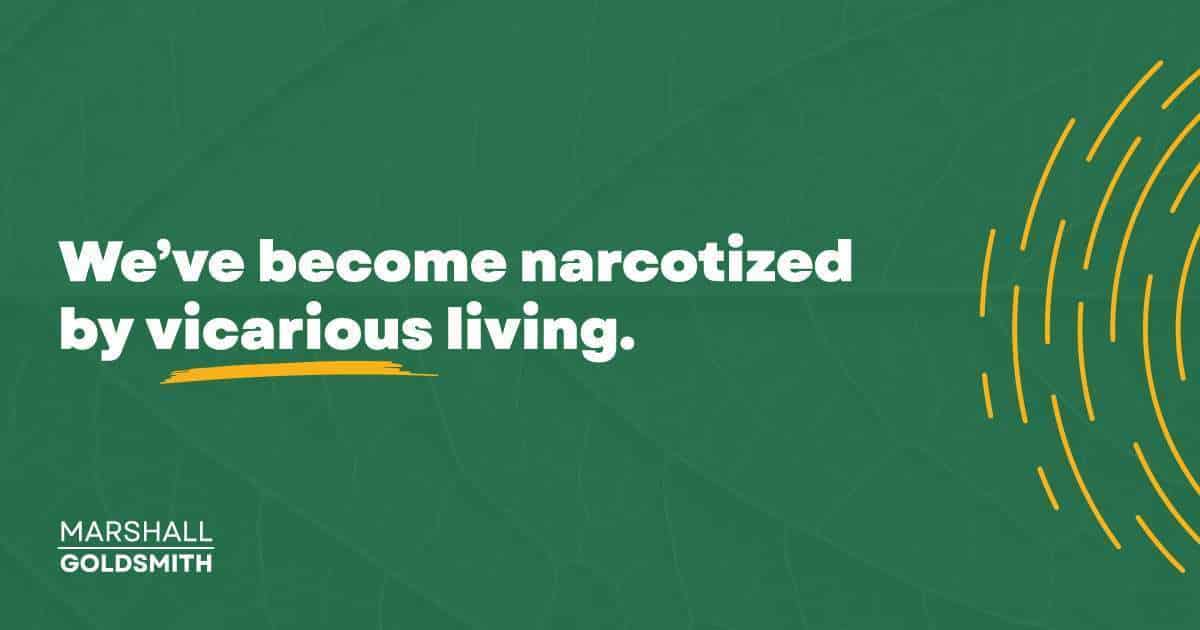Playing Favorites By Marshall Goldsmith There’s a reason I devote...
We live in an age where people can make a living as influencers. That means they convince people to take cues from their behavior or recommendations on social media.
Celebrities such as the Kardashians make millions by endorsing products. Our social-media universe allows these folks to reach a global audience using programs such as Instagram, TikTok, Twitch, YouTube, Snapchat, Twitter, Facebook, VSCO, Reddit, WeChat, and QQ. We don’t know these folks, but somehow people who are “influenced” by them fall for the allure of their public lifestyle, their brand, their charisma, which comes to us virtually.
The pandemic only heightened this, as so many people stayed close to home and only ventured out via social media to experience what others — who seemingly had more liberty and certainly more money — were experiencing. People found vicarious pleasure in watching the lives of others, experiencing secondhand the staged experiences they clicked or swiped onto.
It’s not a secret these days that we’re living in a virtual world most of the time. And that we’ve become narcotized by vicarious living.
This is the most alarming soul-leeching development I’ve observed in the last twenty years.

Because of social media and a smorgasbord of technological distractions, we have an abundance of opportunities to live through other people’s lives rather than live our own. We allow ourselves to be impressed by strangers’ social media posturings.
Sometimes we return the favor by posturing to impress them, ignoring the likelihood that they’re not paying attention to us as avidly as we pay attention to them. In one of the more absurd incarnations of vicarious living, we have graduated from playing video games ourselves (simulations of real life) to paying money to watch elite game players compete against one another in our favorite video games. We have gone from watching to watching others who do our watching.
Narcotized by technology, we sacrifice long-term purpose and fulfillment for the short-term dopamine-driven feedback loops created by Facebook, Twitter, Instagram, TikTok, and other sites. This is not healthy.
As with the pace of change, I don’t see a horizon where this societal problem slows down because a majority of us suddenly stop using social media’s irresistible tools. Only we can control how profoundly we allow vicarious living to infect our lives, one individual at a time.
The damage from this trend toward vicarious living is one of heightened distraction. Instead of focusing on what we know we should be doing, we are, in T. S. Eliot’s immortal phrasing, “distracted from distraction by distraction.”
It’s not just the fault of social media. Our entire world operates as a distraction engine. A warm sunny day, a baseball game on TV, breaking news on the radio, a phone call, a knock at the door, a family emergency, a sudden craving for a doughnut.
Anyone or anything can pull our focus from doing what we should be doing and coax us into doing what others want us to do. That’s one definition of not living your own life.
Again and again, it comes down to being aware of the moment, of where you are now, of knowing that you are constantly changing — still you, but evolving constantly.
Distractions take you out of your own life, don’t they?
That’s not the best way to an earned life — you don’t find true fulfillment through living vicariously.

Adding Too Much Value Won’t Get You There By Marshall...
C-Suite Master Class: No, But, However By Marshall Goldsmith Continuing...
The Doerr Institute: Expanding the Market for Coaches By Marshall...
Making Leadership Development Part of the College Degree at Rice...
Sanyin Siang – Winner of the Thinkers50 Marshall Goldsmith Coaching...
Thinkers50 Marshall Goldsmith Distinguished Achievement Award in Coaching – Nominees...
Leading with Influence: What Is Influence360°? By Marshall Goldsmith Founder...
Are You a Dominator, Manipulator, Persuader or Influencer? By Marshall...
Leading with Influence: Redefining Modern Influence Part 2 By Marshall...
My mission is simple. I want to help successful people achieve positive, lasting change and behavior; for themselves, their people, and their teams. I want to help you make your life a little better. With four decades of experience helping top CEOs and executives overcome limiting beliefs and behaviors to achieve greater success, I don’t do this for fame and accolades. I do this because I love helping people!
As an executive educator and coach, I help people understand how our beliefs and the environments we operate in can trigger negative behaviors. Through simple and practical advice, I help people achieve and sustain positive behavioral change.